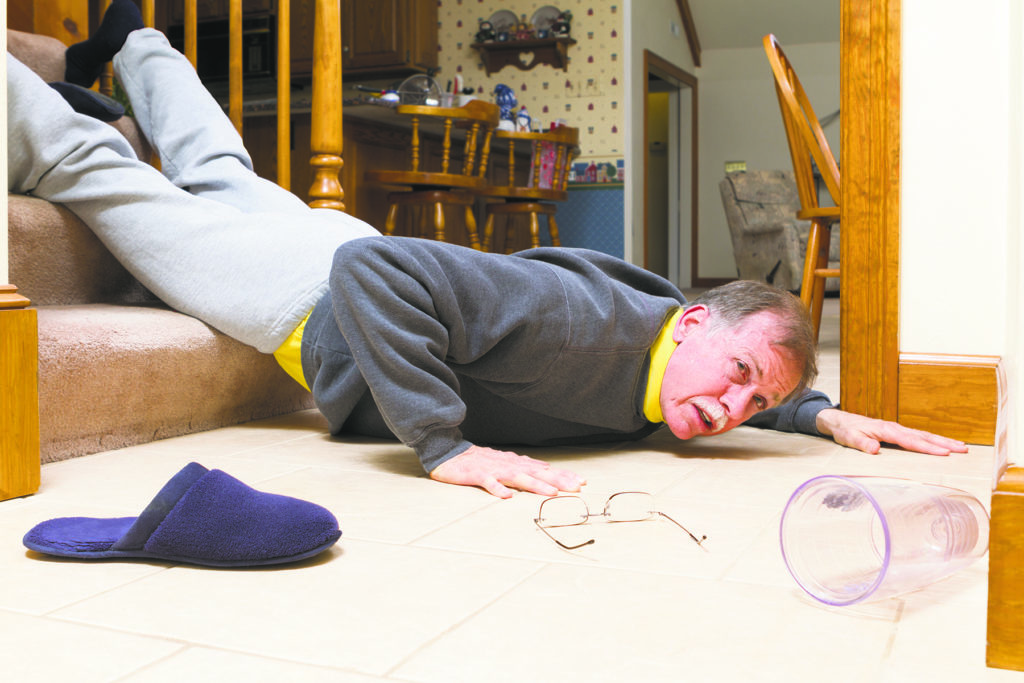
By Anne Markowitz
Advancing age plays a significant role in falls among seniors, who, when they do sustain an injury, are five times more likely to be admitted to a long-term care facility for at least a year. Falls are also the leading cause of injury-related death for people over age 65.
In addition to simply tripping over an object, the smallest things can prove the hardest to avoid: wet or uneven floors, poor lighting, unstable furniture and hazards such as throw rugs, pets and steps.
If you fall, try not to panic, which can prevent you from accurately assessing the situation. Follow procedures and make a notification right away on your medical alert system, if you have one.
Gait and balance changes due to aging increase the risk of falling, such as Parkinson’s disease. Osteoporosis, the thinning of bone tissue and loss of bone density also increases the risk of a fall resulting in a hip fracture. Foot pain and wearing poorly-fitting footwear also contribute to falls.
There are also things seniors can do to reduce the risk of falling:
- Increasing strength, flexibility and balance helps seniors improve stability and walking. Consider Tai Chi, yoga or bicycling, if you are able.
- Review your medications with your doctor or pharmacist. You’ll want to reduce or eliminate those that cause dizziness or drowsiness.
- See an optometrist or ophthalmologist to make sure that you do not have vision issues that increase your risk of falling. Falls also occur more frequently among seniors with vision issues likes cataracts and myopia.
- Lower your hip fracture risk by getting daily recommended levels of calcium and vitamin D and get screened and treated for osteoporosis.
- Other causes include vitamin D deficiency, as well as side effects of some prescription medications and over-the-counter medications.
- Disorders of the spine, including sciatica and spinal stenosis, also potentially increase the risk of seniors experiencing a fall. Joint and muscle disorders increase the likelihood of falling, as well.
It is also essential that you get checked out at your doctor’s office or hospital emergency room when you fall, even if you think you do not have injuries. Many injuries do not exhibit symptoms right away.
Anne Markowitz Recht, LMSW, CMC is CEO of AMR Care Group based in Jericho which provides care management and companion services in New York City, Long Island and Westchester.

































